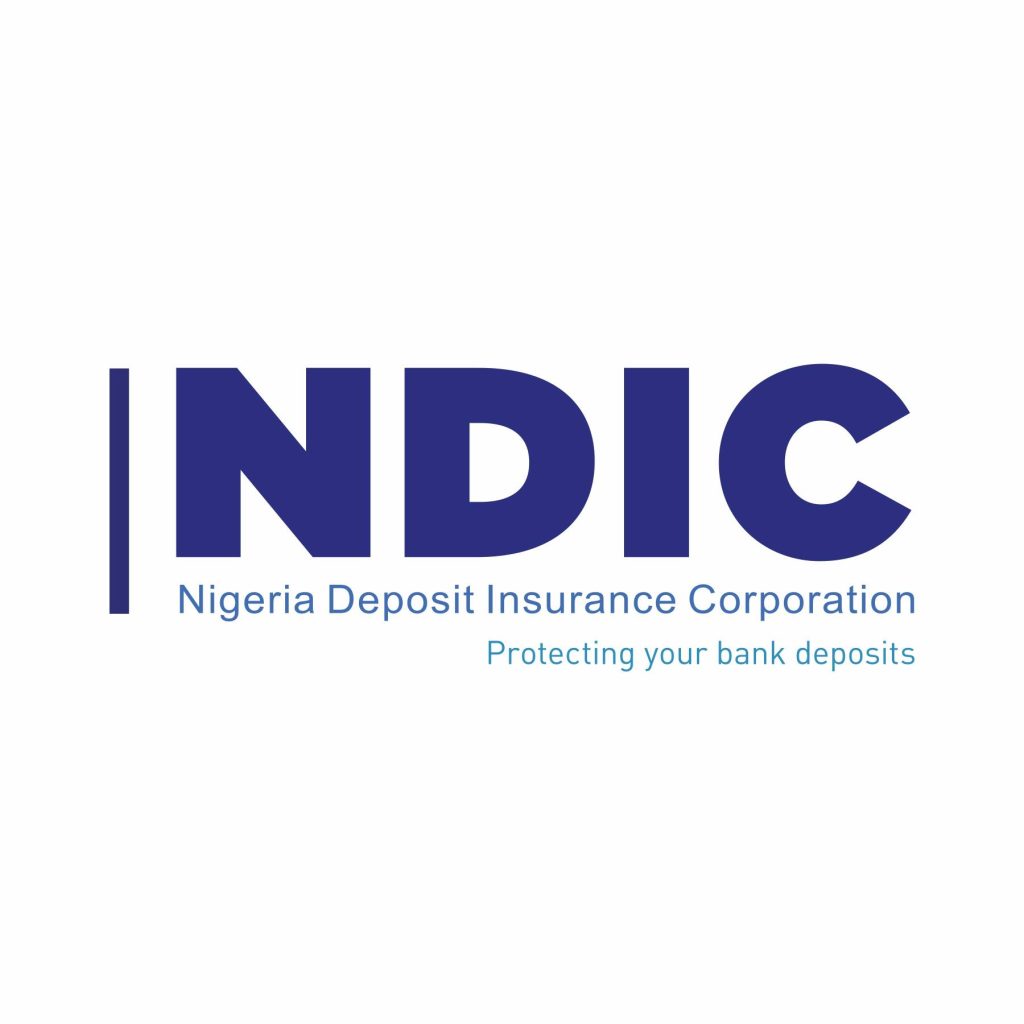NDIC settles 86% insured depositors of Heritage Bank customers, raises insurance coverage

Nigeria Deposit Insurance Corporation NDIC
NDIC settles 86% insured depositors of Heritage Bank customers, raises insurance coverage
Nike Popoola
Nigeria Deposit Insurance Corporation (NDIC) said it has paid 86% of the total insured deposits to customers of the collapsed Heritage bank, while making efforts to complete the payments of the remaining 14% of the insured deposits.
The Managing Director/CEO of NDIC, Mr. Bello Hassan, made this known in Lagos at a retreat for members of the House of Representatives Committee on Insurance and Actuarial Matters, put together by the corporation.
Represented by the Executive Director, Corporate Services of the Corporation, Mrs. Emily Osuji, NDIC helmsman explained that some of the insured depositors constituting the 14% are customers whose accounts have Post No Debit (PND) instructions by courts or regulatory authorities.
Others are those with KYC limitations on the maximum lodgment per day, customers with no BVN attached to their accounts or have not come forward for verification to provide alternate accounts in other banks to enable the Corporation to pay them.
With the theme: “Strengthening Financial Stability and Deposit Insurance Frameworks for Economic Resilience”, he maintained that the steps taken by NDIC so far, were in line with the federal government’s determination towards achieving sustainable growth by strengthening the financial system, as well as in tandem with the Corporation’s efforts on depositor protection and firm collaboration with the CBN in ensuring financial stability via effective supervision of the insured institutions.
Aimed to furnish members of the Committee with the requisite knowledge of the Corporation’s mandate for effective oversight function as provided by the Constitution, he stressed, “This is in line with principle 8 of the International Association of Deposit Insurers (IADI) Core Principles for Effective Deposit Insurance, which advised jurisdictions, to periodically review their deposit insurance coverage, to ensure that, it is credible and cover a large majority of depositors to prevent risk of bank runs, but leave a substantial amount of deposits exposed to market discipline.
“Consequent upon the findings of our study in 2023, the NDIC reviewed the maximum deposit insurance coverage levels, as approved by the Corporation’s Interim Management Committee (IMC) in April 2024. The deposit insurance coverage was raised from N500,000 to N5 million for DMBs and Subscribers of Mobile Money Operators (MMOs).
“Similarly, the coverage for Payment Service Banks (PSBs) and Primary Mortgage Banks (PMBs) was reviewed from N500,000 to N2 million while that of Microfinance Banks (MFBs), was increased from N200,000 to N2 million. It is worthy to mention that, the revised coverage for the DMBs provides a full coverage for 98.98% of the total depositors and 25.37% of the total value of deposits. Accordingly, the revised coverage provides a full deposit insurance cover for 99.27%, 99.34% and 99.99% of total depositors as well as 34.43%, 21.04%, and 43.10% of the total value of deposit of MFBs, PMBs and PSBs, respectively”
Hassan added that the Corporation also recognises the importance of timely reimbursement to depositors in maintaining financial stability. In this regard, it had reassessed its depositor payment methodology with a view to adopting a different approach that would ensure prompt payments to depositors.
“This was tested in the recent payment to depositors of Heritage bank in-liquidation. It is instructive to mention that, the Corporation using the Bank Verification Number (BVN) of depositors obtained from Nigeria Inter Bank Settlement System (NIBSS) was able to access alternate accounts of customers and commenced payment to depositors within a record time of four (4) days.
“Notwithstanding the success recorded in payment of insured sums to depositors of the defunct heritage bank, the Corporation is mindful of the uninsured depositors and we have therefore initiated the process of debt recovery and realisation of investments and physical assets of the bank to ensure timely reimbursement of uninsured deposits”
He assured that upon payoff of both insured and uninsured deposits of Heritage bank, the Corporation will subsequently proceed with the payment of creditors and others in accordance with priority of claim as provided in the extant law.
“We reiterate our commitment to effectively and efficiently supervise all licensed deposit taking institutions, maintain robust early warning systems, conduct stress tests and enforce prompt corrective actions for identified deficiencies. This is targeted at reinforcing public confidence and contribute towards strengthening the financial system” he asserted.
Addressing newsmen shortly after the session, the Chairman, House Committee on insurance and Actuarial Matters, Ahmadu Usman Jaha, assured NDIC of his committee’s readiness to offer support in all fronts as required by law, in other to ensure financial stability in the country as a necessity for sustainable economic growth.
“In recent years, we witnessed various challenges that threatened the resilience of our financial systems-global economic shifts, regulatory challenges, and the impacts of unforeseen crises. These challenges underscore the critical need for robust deposit insurance frameworks that protect depositors and foster confidence in our banking systems”
Jaha pledged to throw weight behind NDIC by reviewing and updating policies to address emerging risks and adapting to the evolving landscape of the financial sector; saying, “NDIC plays a pivotal role in safeguarding deposits, ensuring that our financial institutions operate within a secure environment. We shall continue to enhance the effectiveness of the NDIC in fulfilling its mandate”
He averred that the lawmakers must prioritize enhancement of its regulatory frameworks through collaboration between governmental bodies, financial institutions, and stakeholders to ensure that the regulations are not only comprehensive but also adaptable to changing economic conditions.
“A resilient economy is one that can withstand shocks and continue to thrive. As we work to fortify our deposit insurance schemes, we must also address broader economic factors that contribute to resilience. This includes promoting financial literacy among the populace, encouraging savings, and ensuring that our citizens understand the importance of deposit insurance. More so, we must leverage technology to improve our systems, making them more resilient against potential disruptions if we must strengthen our financial stability” he posited




